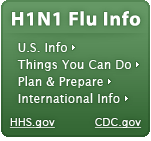On Medicine
Patient-led research in rare disease
This year’s edition of Rare Disease Day is dedicated to research and its importance. As these illnesses are difficult to diagnose and treat, it is of great significance to continue efforts to find as much relevant information as possible. Raremark’s Sarah Venugopal delves into the usefulness of the patients’ voice as one of the best sources of knowledge we have.
1Pixabay, Darko Stojanovic
This year’s global theme for Rare Disease Day is research, something with which most families affected by a rare disease will be familiar. From natural history studies to clinical trials, taking part in research can often be the best way for families to gain access to specialists for a condition, to meet others like them, and to access new treatments in development.
There are currently fewer than 400 approved treatments for the 7000 rare diseases of which we know, leaving 95% of people with a rare disease without a treatment. It’s not just treatment options that are lacking for many families affected by a rare disease. It’s quite common for people to feel like they are in the dark: whether it is what treatment options are available to them, how normal a certain symptom is amongst people with their condition, or what current research programs are available for them to participate in, a lot of these questions may go unanswered.
There are currently fewer than 400 approved treatments for the 7000 rare diseases of which we know.
Raremark helps families share their stories so that they can help others. We are also exploring the ways in which we might help them have a meaningful impact on how research is designed, through patient-led research.
In a small-scale pilot project conducted by our team at the end of 2016, we explored the idea of sharing anonymous, aggregated data within some of our communities. 94% of the participants said they would share selected health-related information about themselves with both the community and the pharmaceutical industry.
The willingness of people in the rare disease community to share their experiences was reflected in a larger RD-Connect study that included similar themes. The findings of this study suggest that, as long as the right governance systems are in place, the rare disease patient community generally has a positive view on the sharing of data to support research.
Our most recent project surveyed 40 people in our myasthenia gravis (MG) community and explored their journey to diagnosis. MG is a neurological condition in which symptoms can include chronic fatigue and muscle weakness. We asked the community questions such as, “how frequently are people misdiagnosed?”, and “what combination of tests seems to be used most often to diagnose someone”.
We found that it took an average of three years for the participants to be correctly diagnosed, with specialists using an average of three different tests to diagnose someone. Nearly half the participants (48%) received at least one misdiagnosis, examples of which included fibromyalgia and chronic fatigue.
The findings of these pilot studies were all shared with the people who took part and with the Raremark community – we’re currently waiting for their feedback. We do not give medical advice but we encourage people to discuss what they read or find online with their doctor and their families, so they can make better-informed decisions about their health.
Small-scale projects, like these, can provide information of great benefit to developers of rare disease drugs: this idea is explored in detail in our latest white paper about tackling rare disease with big and small data.
With research being at the forefront of everyone’s mind this Rare Disease Day, it’s our hope that the findings of patient-led research projects, like ours, are used increasingly by the pharmaceutical industry to develop treatments with those affected by rare diseases in mind.
About Raremark
Raremark partners with companies to help them find the right people in our patient-powered research network to accelerate drug development, and can help them bring patients and families into the drug development process. By doing so, we shorten the time it takes for a potential life-changing drug to be approved, and help the collective voice of the rare disease community be heard.
Sarah Venugopal
Sarah Venugopal heads up engagement and communication at Raremark. She manages Raremark’s communities; engaging with patients, families and healthcare professionals. Sarah has a degree in biochemistry and a Masters in science communication. She comes from a pharmaceutical market research background, where she specialized in digital and patient research.

































No hay comentarios:
Publicar un comentario